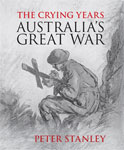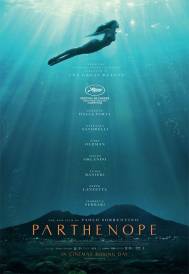The Crying Years

The Crying Years
The Great War of 1914–1918 affected all Australians and decisively changed the new nation. They were the -Crying Years' according to writer Zora Cross, who lost her brother in 1917.
In the new book The Crying Years: Australia's Great War, award-winning historian Peter Stanley has compiled a unique visual history of the era, which weaves a compelling narrative around many striking, never-before-seen images.
Using documents, photographs, artefacts and images from the National Library's collection, Stanley connects the war overseas"the well-chronicled battles at Gallipoli, Fromelles, Passchendaele and Villers-Bretonneux"with the equally bitter war at home, for and against conscription, over -loyalty' and -disloyalty'. Men faced life-changing choices: volunteer to fight or stay at home; join the revolutionary unionists or break the strikes. Women bore the burdens of waiting and worrying, of working for charities or of voting to send men to their deaths. Even children were drawn into the animosities, as communities fractured under the stress. Engaging and accessibly written, The Crying Years evokes the drama, tragedy, suffering and sacrifice of Australia's Great War and its lingering aftermath.
Peter Stanley is a Research Professor at UNSW Canberra. He is one of Australia's most active military social historians and the author of over 30 books, many dealing with Australia's Great War. He was formerly Principal Historian at the Australian War Memorial, was jointly awarded the Prime Minister's Prize for Australian History (in 2011) and is the current President of Honest History.
The Crying Years
NLA Publishing
Author: Peter Stanley
RRP: $44.99
Interview with Peter Stanley
Question: What inspired you to write The Crying Years?
Peter Stanley: Seeing some of the virtually unknown images in the National Library's photo graph collection gave me the idea for the book. People don't think of the Library when they think of the Great War (besides well known and used collections of papers such as Billy Hughes's or John Monash's), but there are huge and largely unexploited lodes of sources and I saw that it was very fitting to expose them in the centenary years of the war.
Question: What research did you conduct before beginning the writing process?
Peter Stanley: I basically soaked myself in the Library's Great War-related collections, taking the time to look at everything I thought might be relevant and picking up on hints and references in other people's work. But research and writing weren't separate - I had to work out a way of presenting the Library's material in order to say something new and worth reading about Australia's experience of the Great War. I actually wrote the book twice - that is, I reorganised it completely before settling on a scheme that worked - that presented the history and the collection most effectively.
Question: Can you talk about how you sourced the never-before-seen images?
Peter Stanley: Finding the new stuff, and especially the never-before-seen images, was was basically a matter of just slogging through the albums and folders and boxes, because a lot of material hadn't been identified at what archivists call 'item level'. The Library also has amazing collections of 'realia' - badges, medallions - even a piece of rail from the Trans-Australia railway! As ever, it's persistence that gets results in research.
Question: What do you hope readers take from The Crying Years?
Peter Stanley: I hope readers will see that there are new and different ways of understanding Australia's experience of the First World War, that the familiar khaki narrative of Gallipoli-to-the Armistice isn't the only interpretation, or the most powerful. Of course the Diggers' war is there, but only a few Australians served at the front - for most the war involved anxiety, hardship, strife and dissension, which is a powerful but less familiar story, and one which is just as compelling and which the Library's collection uniquely enables us to understand.
Interview by Brooke Hunter
The Crying Years
NLA Publishing
Author: Peter Stanley
RRP: $44.99
MORE



